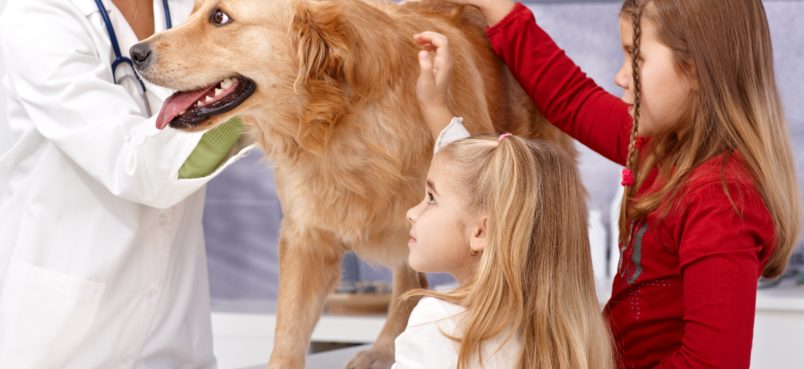As a veterinarian, you might not have long-term disability insurance or income protection insurance. Still, like others in the medical profession, your need to have this valuable coverage is critical. Disability insurance for veterinarians protects your income if you’re unable to do your job due to sickness or an accident. Any highly specialized professional needs to protect their future income, no matter what life throws at them, and veterinarians are no different.
What to Expect-Disability Insurance for Veterinarians
Going to college and completing veterinary medicine school takes a lot of time. Once graduated, a veterinarian can expect to earn a solid income. Spending all of those years and money learning your craft necessitates protecting your future earning power.
Disability insurance for veterinarians insures and protects your income if you’re unable to work. Depending on the type of policy that you buy, you may be covered for the majority of your working years.
The average veterinarian is female and makes a little over 99k per year. The median age for veterinarians is 44.
Disability insurance for veterinarians is based on your age, gender, and health.
The younger you purchase your disability insurance, the better your pricing will be. Since most veterinarians are between the ages of 40 and 50, it is crucial to buy your policy as early in your career as possible.
Nearly two-thirds of veterinarians are women, which is not ideal for disability insurance. Women pay more for disability insurance than men, but again that can be mitigated by obtaining your policy early in your career.
Health is unique to each individual. Disability insurance can cost more for people who are overweight or smoke. Unlike life insurance, disability insurance can also exclude certain conditions from claims. While most policies have base exclusions for things such as self-harm or war, they can also exclude pre-existing conditions such as joint problems or mental/nervous disorders.
The other consideration, which is largely beyond your control (since you’re unlikely to establish a practice based on purchasing disability insurance), is the type of animals with which you work.
In disability insurance, your occupation class dictates your pricing along side of the factors listed above.
A veterinarian who works with small animals has a better occupation class than one who works with large animals or at a zoo.
For ExampleLet’s look at two 30-year-old female veterinarians. Both purchase identical policies (4k/mo benefits to age 65 with the usual riders). One veterinarian chooses to work with large animals, the other small. The large animal vet would pay 210.11/mo for her policy whereas the small animal vet would pay 145.36/mo.
As you can see, small animal veterinarians pay much less for disability insurance than large animal/zoo veterinarians.
If you’re a large animal veterinarian and want to reduce the costs of your disability insurance policy (small animal vets can do this too), read the following for a few ideas.
What to Look For-Disability Insurance for Veterinarians
There are a lot of moving parts that can affect both the cost and the efficacy of your disability insurance policy. It is very important to speak with someone who specializes in these policies to make sure that you’re getting the best policy for your needs. If you’re a veterinarian who is looking for disability insurance, complete the quote form on the left and we’ll get to work for you.
Policy Design
Any profession that requires advanced degrees also requires excellent policy definitions.
Your policy’s definitions are the triggers that let you get a claim. Ideally, a veterinarian would want an own occupation policy (i.e. one that allows them to go on claim if they are unable to do their job as a veterinarian, even if they can (and do) work in another field while still disabled.)
Residual disability is another common feature that the best disability insurance for veterinarians has. This rider allows you to go on claim due to sickness or injury while you’re still working as a vet, so long as you suffer a loss of earnings (typically 20%).
If you are just getting started as a veterinarian, you want to make sure that you have the ability to increase your benefit amount without proof of medical insurability.
Called a future increase option (FIO) or a benefits update (BU), this rider allows you to bump up your benefit amount as your earnings increase by simply providing proof of increased income.
To someone in a new career that will likely make more money down the road (such as a veterinarian), the ability to increase your coverage, even if your health isn’t as strong as it was when you purchased the policy, is very valuable.
Lastly, your policy should cover the majority of your working years.
While most disability insurance policies are guaranteed renewable to age 65 (meaning that you can keep it that long at a minimum), the benefit length dictates how long you can go claim.
Most disability insurance companies have policies that allow an insured person to go on claim to age 65, 67, or even age 70. Regardless of which option you choose on your policy, you should make sure that it covers the majority of the years that you’re earning income.
The Insurance Company
The majority of the big players in the disability insurance market are highly rated and are very favorable towards veterinarians.
The key is to make sure that you focus on the white-collar carriers. A disability insurance policy from a carrier such as Guardian will be ideal for a veterinarian.
Selecting the right carrier (which we will help you do) will make sure that your disability insurance policy best fits your goals, including both price and benefits.
Other Options
We’ve already established that unless you’re independently wealthy, you should have disability insurance for veterinarians.
But what if you have a health issue or if the policies that you’re being quoted are just too expensive? Also, if you’re self-employed, who will pay your lease and payroll if you’re unable to come to work for an extended period of time due to an accident or illness?
Luckily, there are additional options for veterinarians outside of traditional individual disability insurance.
Group Disability Insurance
If you work for a zoo or a university, you may have options available to you through your employer.
If you have true group coverage, the pricing can be very attractive. While the definitions and features of a group policy may not be as strong as purchasing your own policy, the cost vs. the benefits is favorable.
In addition to pricing, group disability insurance can also cover pre-existing conditions and is normally guaranteed issue. This means that if you have a health issue or something that would normally preclude you from getting individual disability insurance for veterinarians, you still have the option to purchase your group coverage.
We review work policies for no charge and will be happy to review your options in order to help you make the best decision.
Supplemental disability insurance can also be offered through employers. This coverage is normally voluntary, meaning that you pay for it yourself (as opposed to your employer).
Voluntary supplemental group coverage normally has very poor definitions, especially for a specialized profession such as veterinarians. Many of these policies have a limited own occupation, meaning that after a few years you’ll have to be deemed unable to do any reasonable job based on your training, education, and experience.
For ExampleLet’s say that a veterinarian develops severe arthritis and is unable to continue practicing veterinary medicine. If after a few years your disability insurance policy requires you to be unable to perform ANY job (known as “any occ”), you may be forced off claim if you can do another job, such as teaching.
If you have a group policy available to you, it should certainly be explored.
Disability Insurance for Self-Employed Veterinarians
In addition to individual, personal disability insurance, self-employed veterinarians have a few other options that should be considered too.
When most people think about group coverage, they picture a large company.
However, small group coverage is a thing, and it is available to groups as small as 2 people.
It comes with most of the same pros and cons as a supplemental voluntary group, so while it is available, it is not ideal.
Now, if you have a health condition or would like a pre-existing condition to have some coverage, then the small group option should be considered.
Another consideration for a self-employed vet is business overhead expense insurance.
Business overhead expense (BOE) disability insurance helps you to pay your business expenses while disabled. Typical BOE disability insurance for veterinarians will cover fixed costs such as your lease, your payroll, and some of your insurance. Items that are normally deductible on your business tax return can often be covered by business overhead disability insurance.
So, whether you work for an employer or you run your own practice, there are many aspects of your disability coverage which should be explored.
Summary
We help veterinarians find the best disability insurance for their needs and goals. If you’d like to see what disability coverage is available to you, please complete the form on the left or simply contact us.
Disability insurance for veterinarians has a lot of moving parts.
Whether you work with small or large animals, for a zoo or for yourself, there is a lot to take into account.
Working with our agency, you’ll know that we’ve shopped all of the major carriers for your specific profession and that you’re getting the best possible deal for the benefits requested.
We’re here to help.
If you’re a veterinarian looking for disability insurance, please reach out to us today to begin the process of protecting one of your most valuable assets – your future earning power.


